The author and publisher have provided this e-book to you for your personal use only. You may not make this e-book publicly available in any way. Copyright infringement is against the law. If you believe the copy of this e-book you are reading infringes on the authors copyright, please notify the publisher at: us.macmillanusa.com/piracy.
Youve put in a lot of thought and hard work to get where you are now: an almost college student. But if youre like the thousands of students weve worked with over the years, youve got questions, concerns, and anxieties about whats to come. And that makes sensethe transition from high schooland hometo college can be stressful for you and your family. Thats true whether youre the first person in your family to go to college or not.
College is wonderfulbut its different from high school. College is challengingand its supposed to be. Its the transition to college thats often the most stressful part for incoming students and their families.
Heres the good news:
WHAT IT TAKES to succeed in college is mysterious, but it isnt rocket science (our apologies to aerospace engineering majors). When you understand what its all about, youre going to feel a lot better.
PREPARATION HELPS. You already know this from your experience with tests, sports, or performances.
This book will take the mystery out of what college is all about (adulting) and recommend simple, important, and practical steps you should take to set yourself up for success. How to College covers the whole campus experience: living and learning with peers; college-level academics; taking care of yourself; finding and using resources; handling your finances; and getting around (and involved) on and off campus.
In addition to insiders advice about adulting that really works, How to College includes four types of activities:
 KNOW BEFORE YOU GO: In these exercises, youll be asked to find answers to questions specific to you or your college. For example, you need to understand your health insurance coverage, including how to find a participating provider and what a copay is; figure out how to use the public transportation options near your new campus; and know the differences between terms such as stress and distress.
KNOW BEFORE YOU GO: In these exercises, youll be asked to find answers to questions specific to you or your college. For example, you need to understand your health insurance coverage, including how to find a participating provider and what a copay is; figure out how to use the public transportation options near your new campus; and know the differences between terms such as stress and distress.
 DO BEFORE YOU GO: These are activities you should complete before move-in day. For example, you should make appointments with your healthcare providers; introduce yourself to your professors with a professional email; and add tools such as a shuttle bus tracker and your colleges suggested safety apps to your smartphone.
DO BEFORE YOU GO: These are activities you should complete before move-in day. For example, you should make appointments with your healthcare providers; introduce yourself to your professors with a professional email; and add tools such as a shuttle bus tracker and your colleges suggested safety apps to your smartphone.
 DISCUSS BEFORE YOU GO: These are topics to discuss with your parent(s) or your family, with conversation prompts to get you started. For example, how often do you expect to communicate with your family, and how? What role will your family play on move-in day? What backup plans do you have for uncomfortable and potentially dangerous situations you might encounter during your first semester? Which expenses (if any) will your family pay directly and which will be your responsibility?
DISCUSS BEFORE YOU GO: These are topics to discuss with your parent(s) or your family, with conversation prompts to get you started. For example, how often do you expect to communicate with your family, and how? What role will your family play on move-in day? What backup plans do you have for uncomfortable and potentially dangerous situations you might encounter during your first semester? Which expenses (if any) will your family pay directly and which will be your responsibility?
 WHEN YOURE THERE: These are expert tips about how to succeed and thrive in your first year, including advice for reading, studying, and writing; maintaining your health; getting involved on and off campus; and more. Preparation is essential, but these tips are about how to college once youre at college, so make sure to pack this book when you head to school.
WHEN YOURE THERE: These are expert tips about how to succeed and thrive in your first year, including advice for reading, studying, and writing; maintaining your health; getting involved on and off campus; and more. Preparation is essential, but these tips are about how to college once youre at college, so make sure to pack this book when you head to school.
After completing the exercises in this book, you should be able to tackle the college transition and its typical challengeswhether its a roommate conflict, a disappointing grade, or your first illness away from home.
Youll notice that the tone of this guide is both serious and fun. Thats what college and adulting are like, too. Youll experience pride in your accomplishments and in learning from your mistakes and mishaps. Some things will be difficult, and the stakes are also high; thats something to take seriously. But we want you to know that college should be a joyful time of new experiences, friends, learning, questioning, and freedoms.
Youve probably also noticed that were talking directly to you, the (almost) college student. In college, youll make more decisions yourself. You will be your professors only point of contact about your academics (learn more about that in chapter 5); youll be responsible for getting enough sleep and consuming healthy food (chapter 9); and youll start building your future through internships and jobs (chapter 19). Your family will play a role as you prepare to leave for college (and will be a resource when youre there, too), but this is yours to do.
Youll also be expected to manage your time in college. As your first act of adulting, start now by planning what you should know, do, and discuss before leaving for campus. Youll find a checklist at the end of the book that includes all the exercises weve included throughout the book. Some will be more relevant or interesting to you than others. You decide how youll tackle them. Setting priorities is an adulting skill. Rememberyoure in charge. Youre (almost) a college student.
Have you ever had a conversation that began, We need to see other people? This book is one of those. It is an eye-opening recognition that your student is on the path to adulthood. Its time for them to learn what youve already learned: that in adulthood, we must build a healthy and productive network of support and mentorship that includes people beyond the family.
This book is addressed to your student for a reason: at its core, How to College is a subset of How to Be an Adult. And that means were speaking to your student as the adult you want them to be, and the adult they will be expected to be when college begins. You might have bought this book for your student, and if so, we know you share our belief that theres a lot to learn, and that preparation matters.
In our work with thousands of first-year college students (and as parents ourselves), weve learned that a young persons transition from high school student to college student (and emerging adult) doesnt happen overnight. As parents and families, you play a very important role in supporting your student in taking steps toward independence. Thats true whether you went to college yourself or not; this book is written for every student and every family.
What can you do? First, read the book yourself, if youd like. We recommend that you have a look at the Know and Do Before You Go checklist , which outlines what we recommend students do before they leave for campus. Next, your job is to support and encourage them to use this booknot to take the lead in their preparation for college. Thats their job. If you see something on the checklist that you feel is particularly important for them to address, let them know.
This book is about adulting, and that includes honest conversations between you and your emerging adult about how to prepare. It should include your concerns and priorities as well. The Discuss Before You Go exercises in this book are very important. These include prompts for conversations that current college students have told us they wished theyd had with their parents and families before leaving home. These exercises also include prompts for conversations that parents and families have told us they wish theyd had with their kids before those kids left for college. We encourage you to prepare for these conversations by considering your new rules and expectations. The transition to college from home and high school is a significant one, and we all want it to go as smoothly as possible.


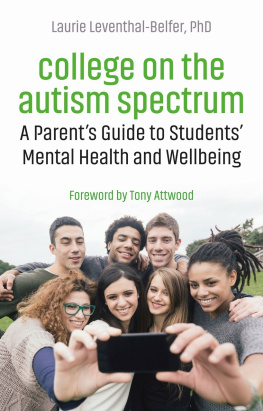
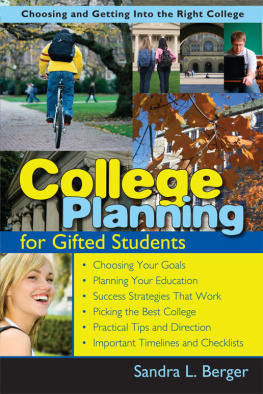
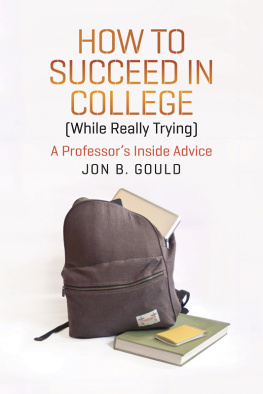
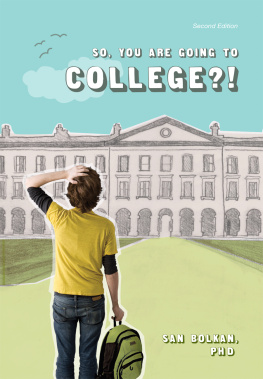
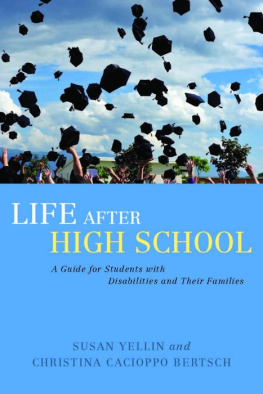
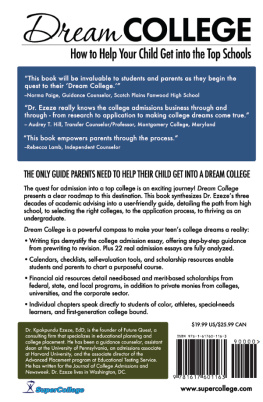
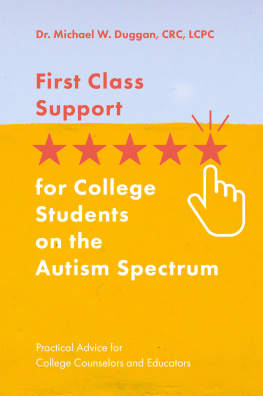
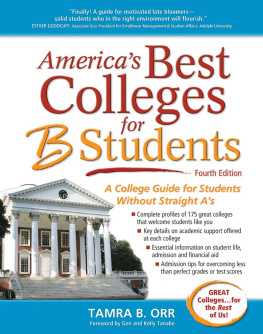
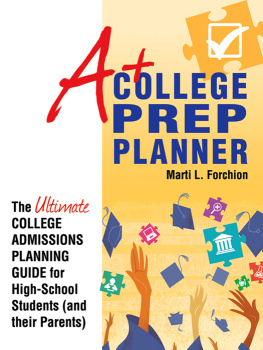
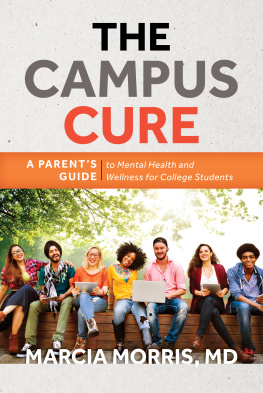
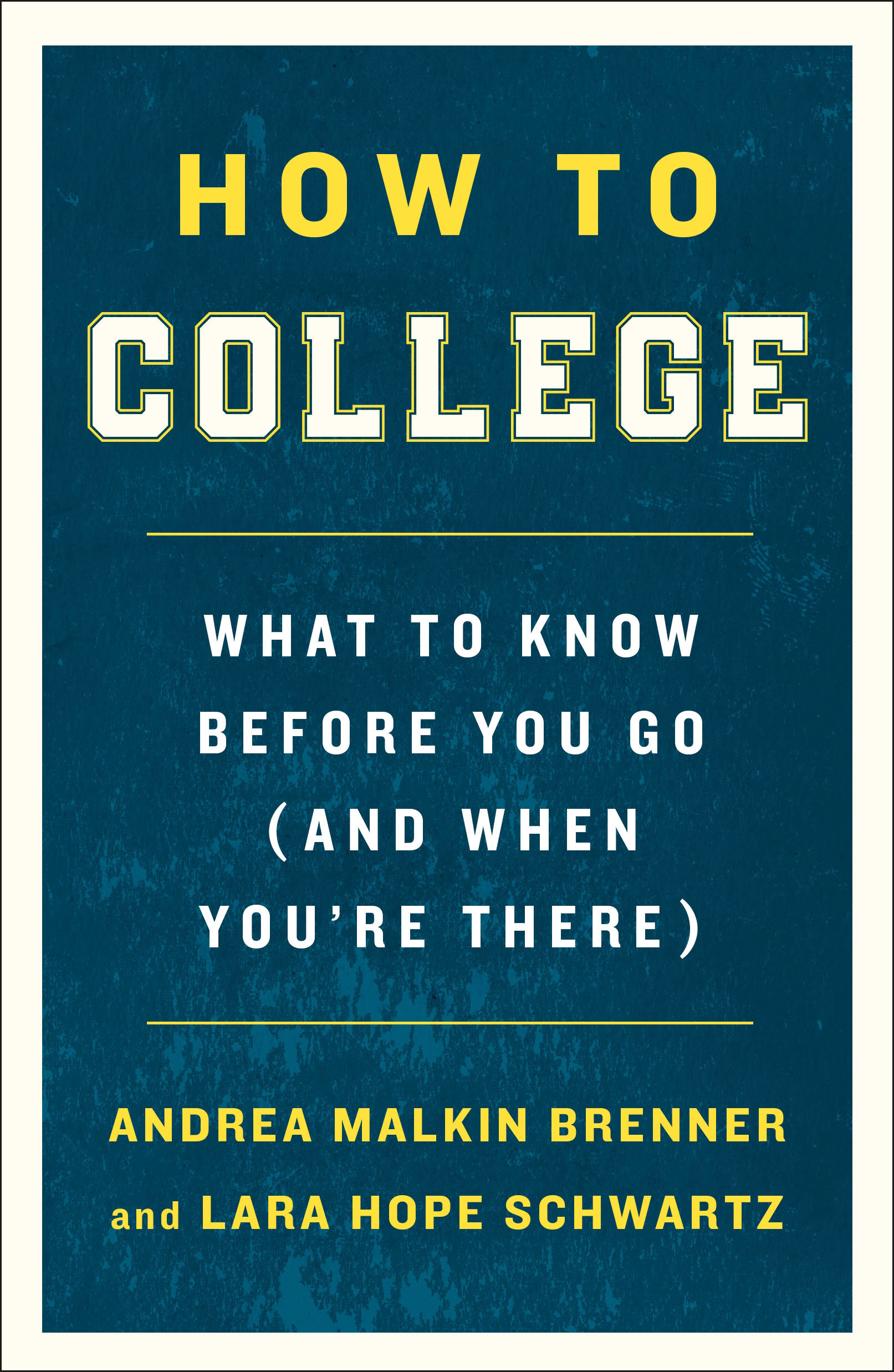

 KNOW BEFORE YOU GO: In these exercises, youll be asked to find answers to questions specific to you or your college. For example, you need to understand your health insurance coverage, including how to find a participating provider and what a copay is; figure out how to use the public transportation options near your new campus; and know the differences between terms such as stress and distress.
KNOW BEFORE YOU GO: In these exercises, youll be asked to find answers to questions specific to you or your college. For example, you need to understand your health insurance coverage, including how to find a participating provider and what a copay is; figure out how to use the public transportation options near your new campus; and know the differences between terms such as stress and distress.